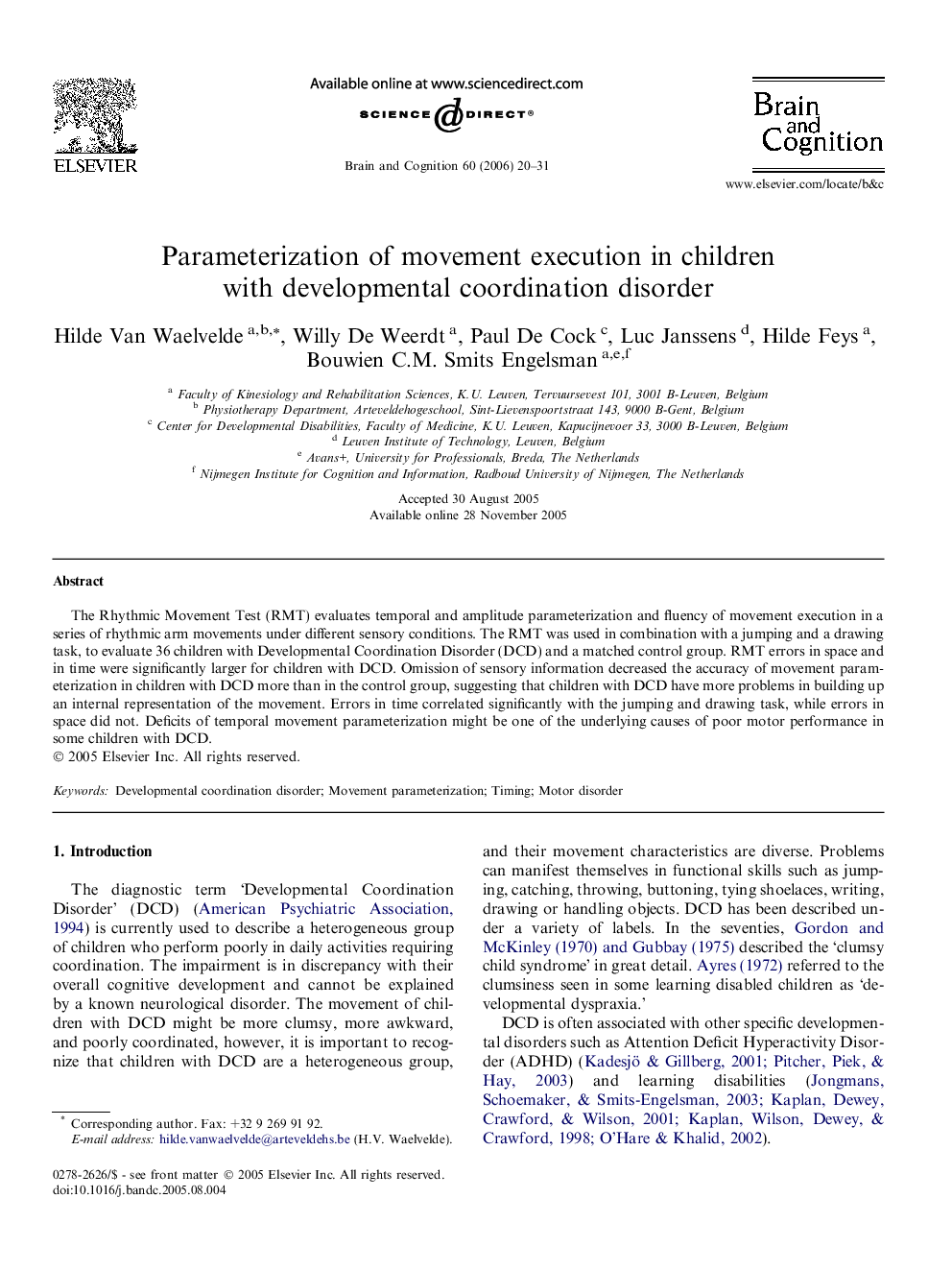| Article ID | Journal | Published Year | Pages | File Type |
|---|---|---|---|---|
| 925171 | Brain and Cognition | 2006 | 12 Pages |
The Rhythmic Movement Test (RMT) evaluates temporal and amplitude parameterization and fluency of movement execution in a series of rhythmic arm movements under different sensory conditions. The RMT was used in combination with a jumping and a drawing task, to evaluate 36 children with Developmental Coordination Disorder (DCD) and a matched control group. RMT errors in space and in time were significantly larger for children with DCD. Omission of sensory information decreased the accuracy of movement parameterization in children with DCD more than in the control group, suggesting that children with DCD have more problems in building up an internal representation of the movement. Errors in time correlated significantly with the jumping and drawing task, while errors in space did not. Deficits of temporal movement parameterization might be one of the underlying causes of poor motor performance in some children with DCD.
